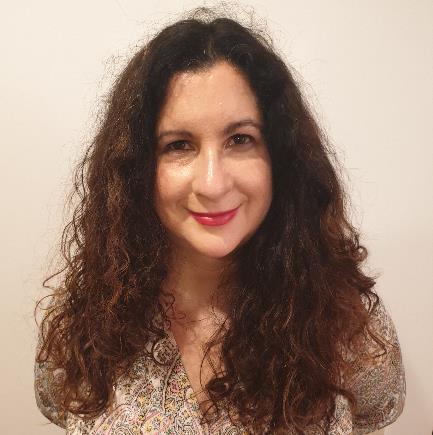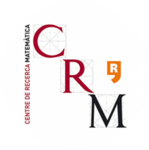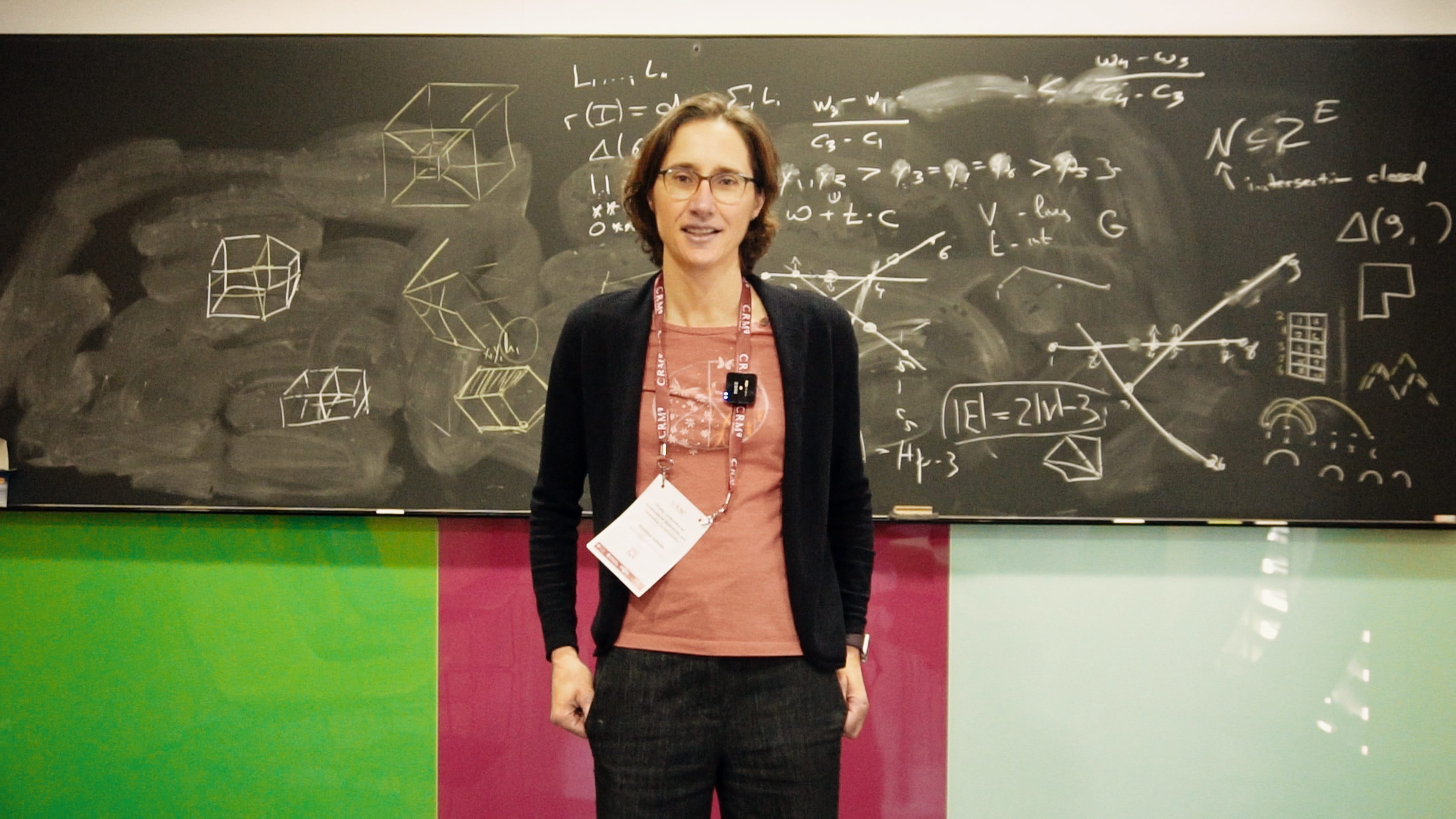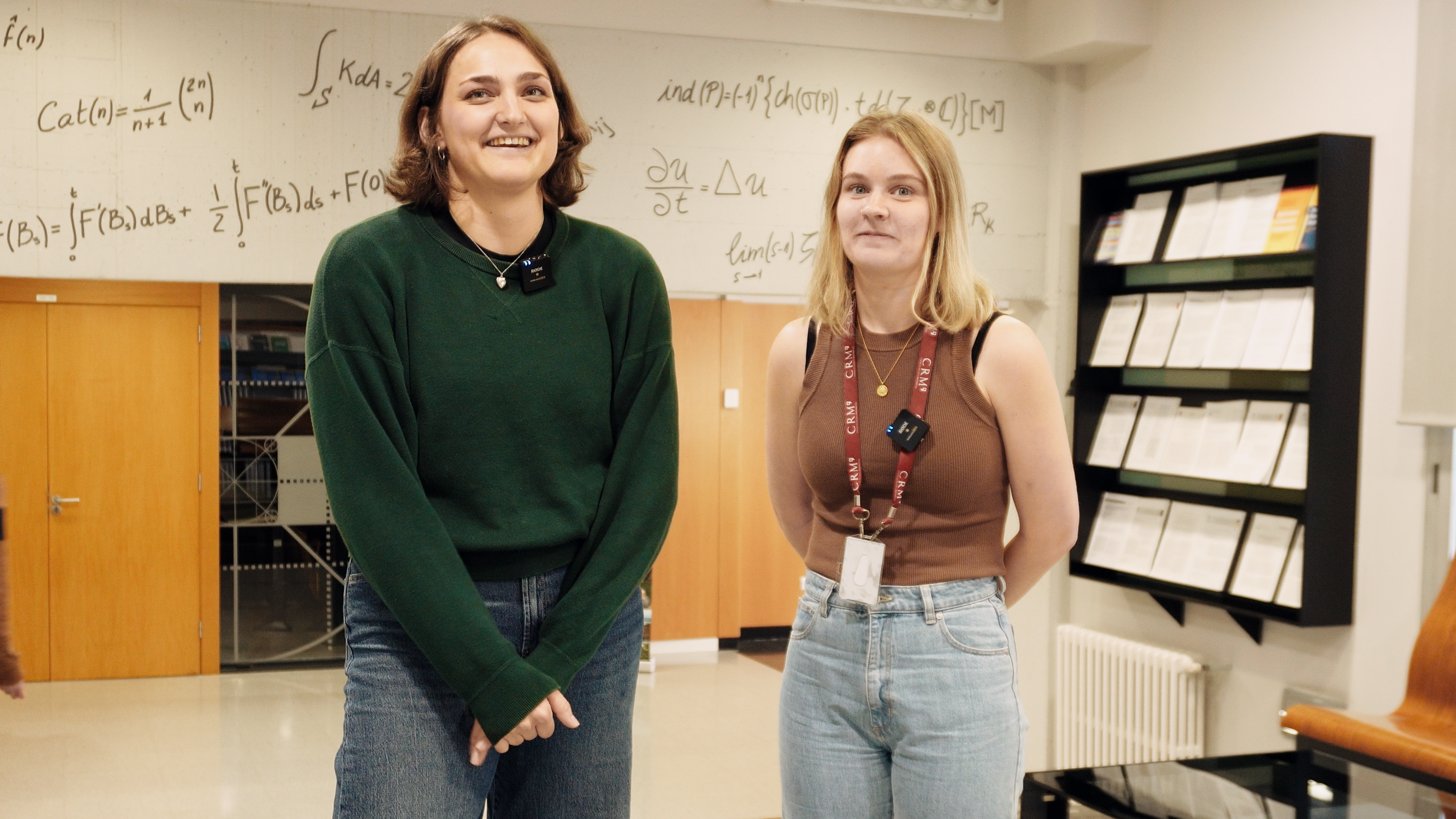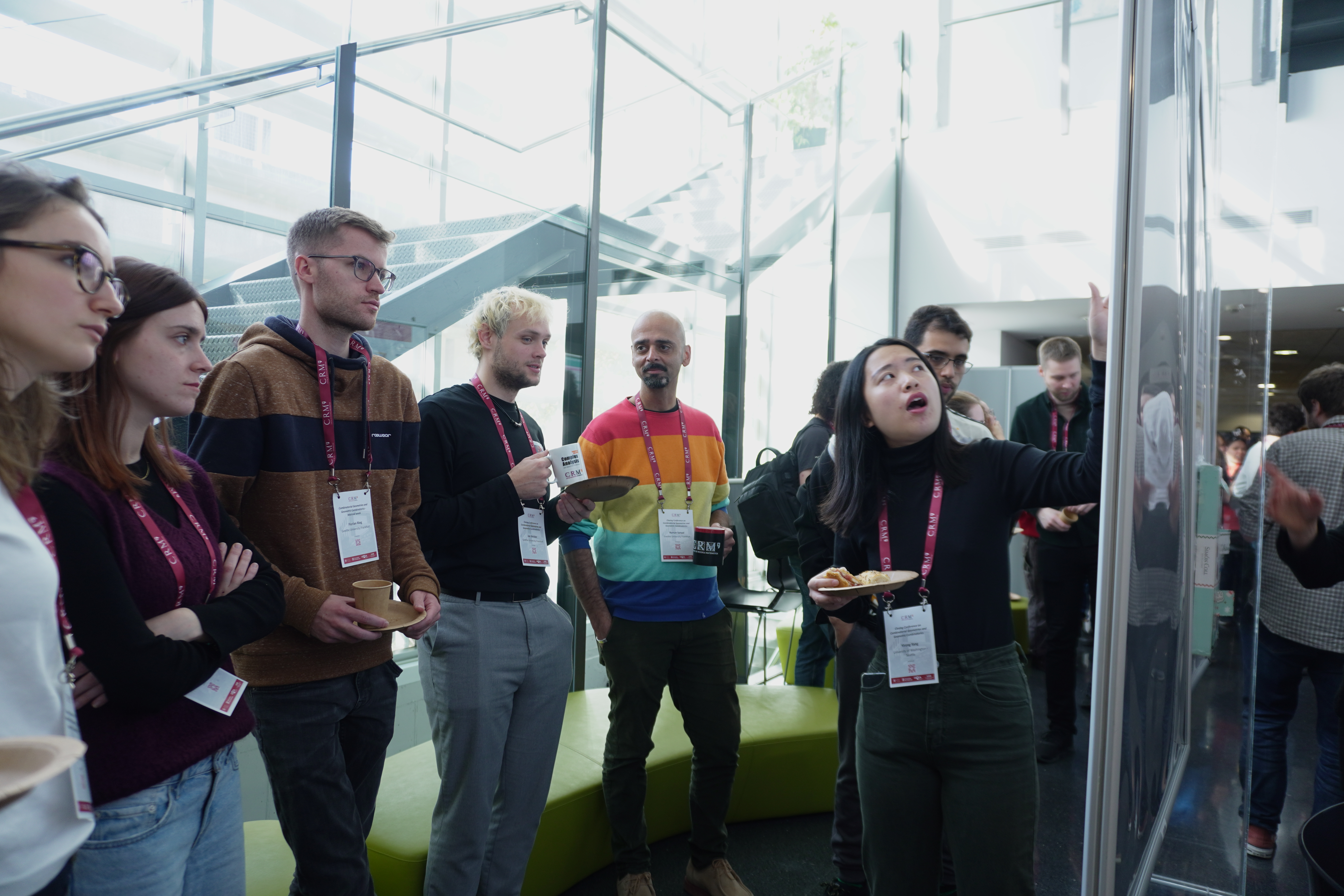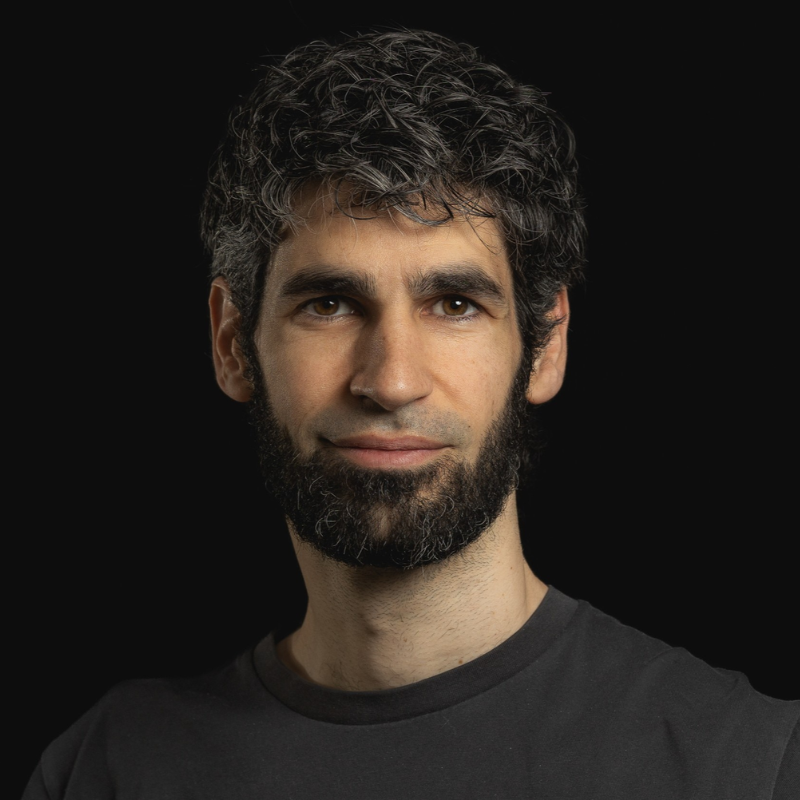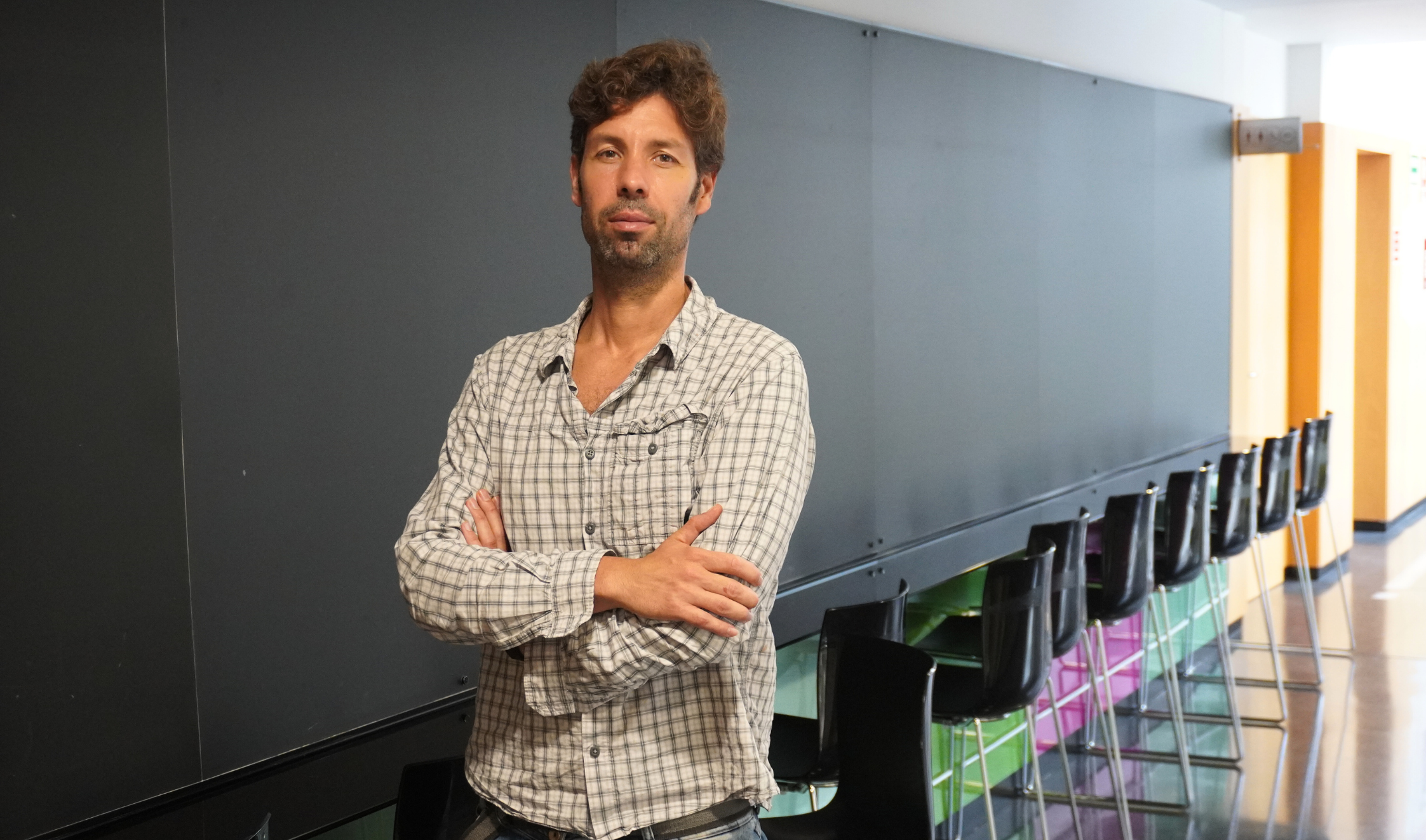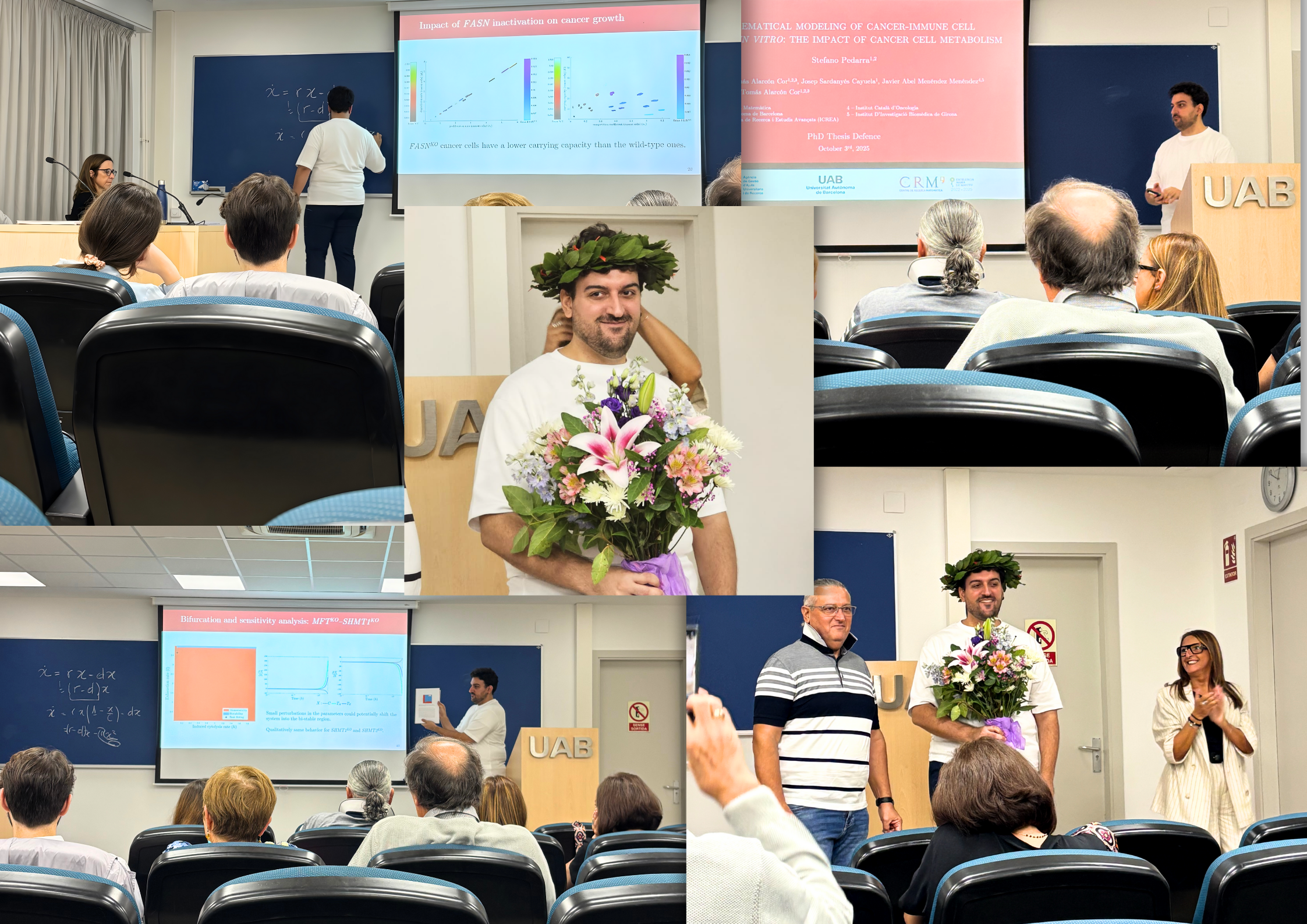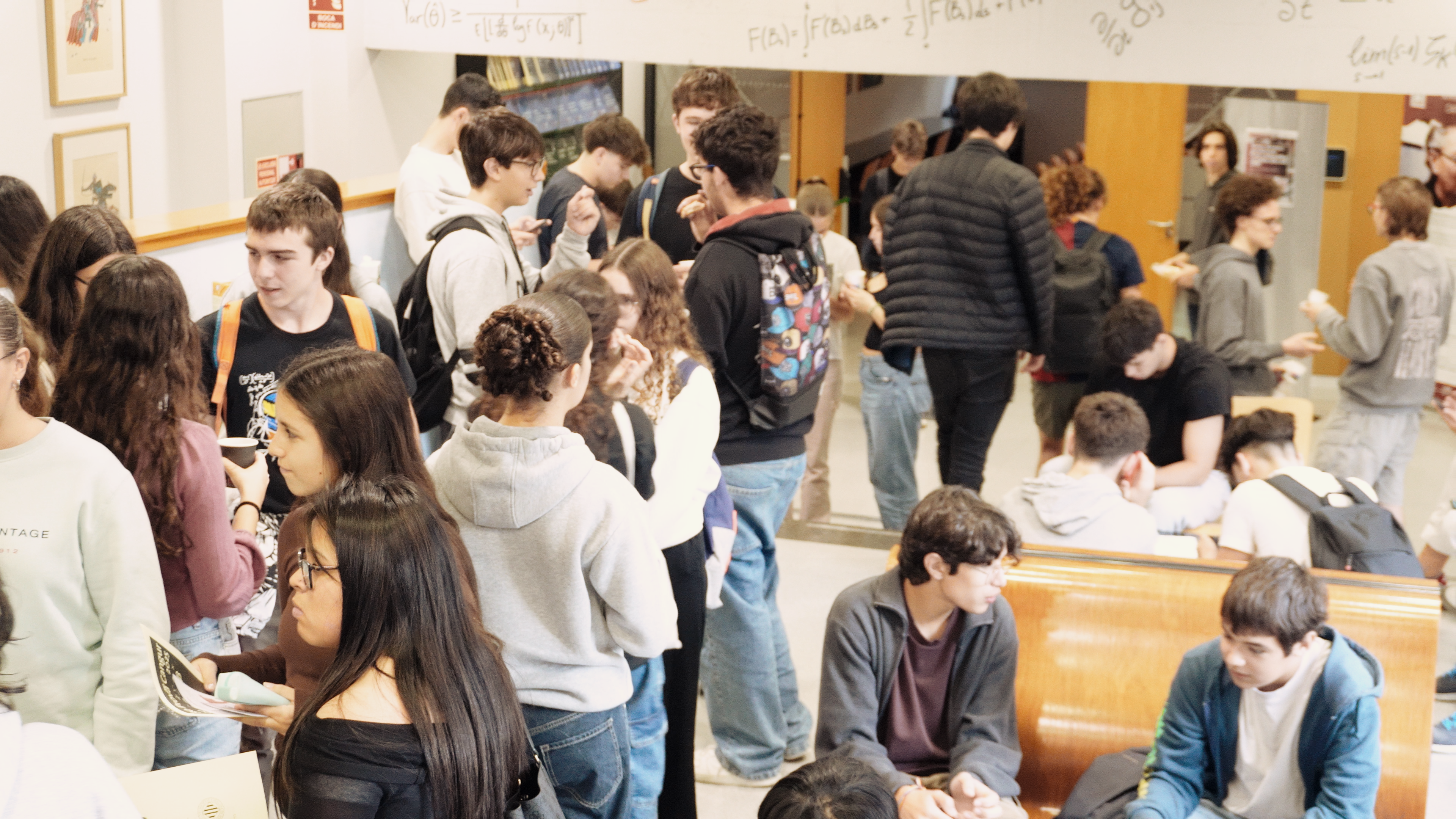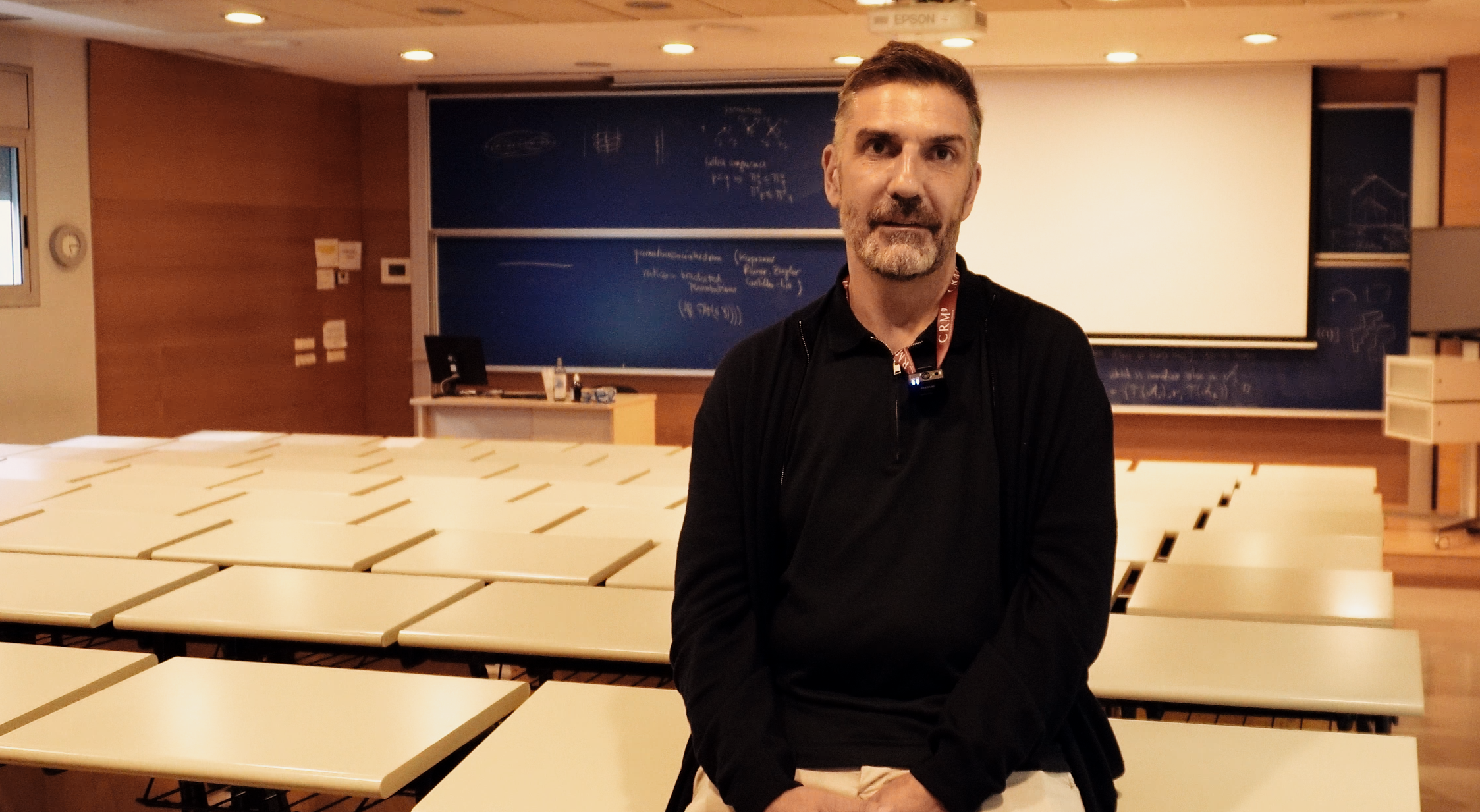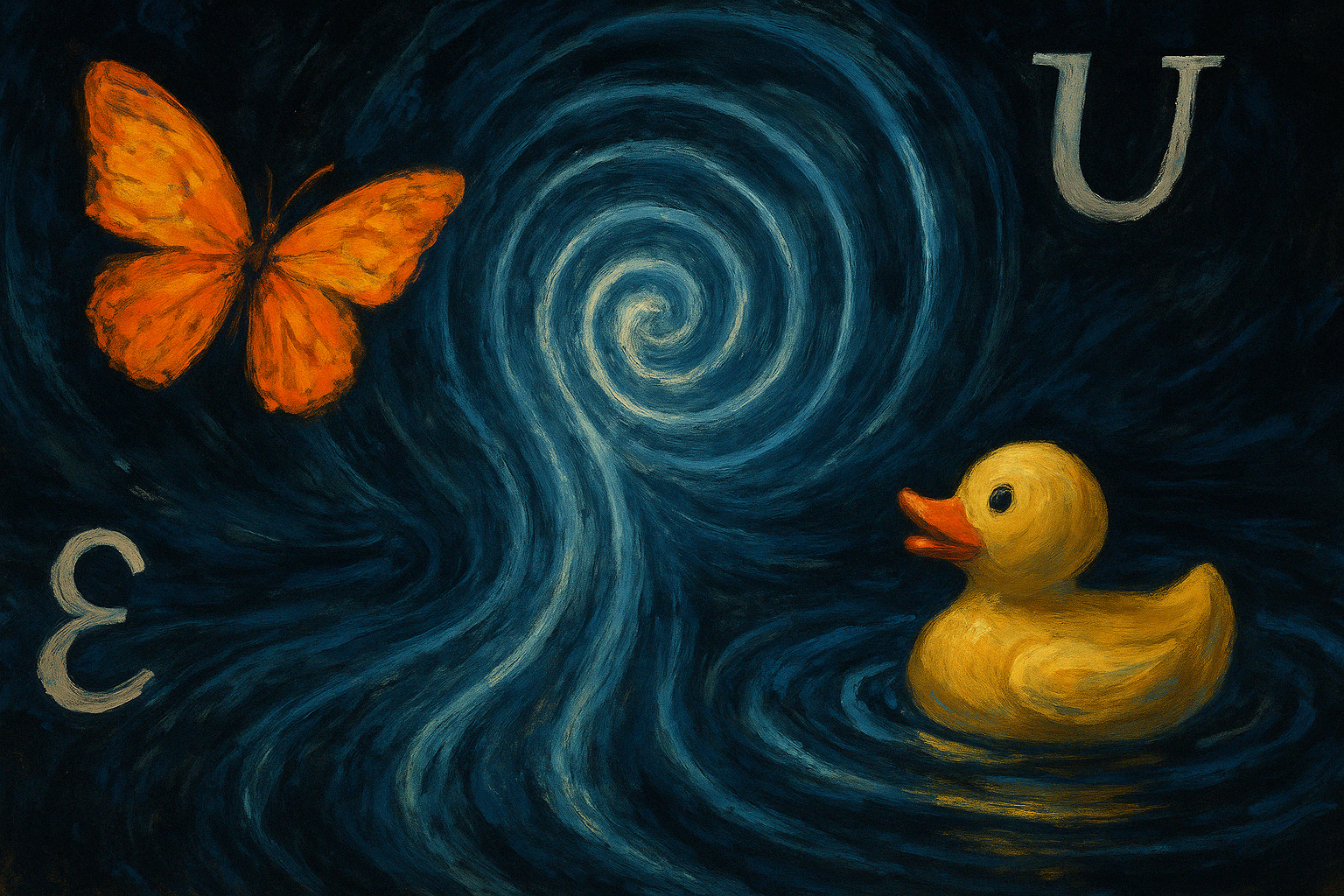
Eva Miranda, professor of mathematics at the Universitat Politècnica de Catalunya (UPC) and affiliated researcher at the Centre de Recerca Matemàtica (CRM), is one of the featured experts in an article by the international publication Quanta Magazine that explores one of the most profound questions in modern science: are there limits to what we can ever know about the physical world?
The article, titled Next-Level Chaos Traces the True Limit of Predictability and published on March 7th, examines how chaos theory, originally concerned with systems sensitive to initial conditions, is evolving into a more radical conceptual landscape: undecidability. If classical chaos already shattered our hopes of perfect prediction by showing that small differences in starting conditions can lead to wildly different outcomes, undecidability goes a step further. It does not stem from imprecision, but from the intrinsic structure of certain systems that defy computation entirely.
As Miranda explains, classical chaos is the realm of the butterfly and the hurricane, a world where evolution is deterministic but practically unpredictable. “It’s the dance of shadows,” she says, “a choreography of dynamical systems that elude our grasp not because they lack order, but because that order escapes us.” Undecidability, by contrast, emerges when a physical system (a fluid, a planetary orbit, a mechanical structure) is so rich that it can encode any computation, like a Turing machine. And when that happens, the halting problem enters the picture: no algorithm can determine whether the system will evolve in one way or another.
“Undecidability is something else entirely; colder, more philosophical, and perhaps more disquieting,” she adds. “It’s a closed door we may knock on forever without knowing if it will ever open.”
Within this context, Miranda and her collaborators, Robert Cardona, Daniel Peralta-Salas, and Francisco Presas, designed a theoretical fluid system that encodes the operations of a Turing machine. In this setup, a particle (symbolically represented by a rubber duck) follows a trajectory that simulates a computation. Predicting whether the duck reaches a certain area is equivalent to solving the halting problem, a provably unresolvable problem. This means that, in principle, even with perfect knowledge of the system’s initial state, no definitive prediction can be made.
“Some systems are so complex, so capable of encoding processes, that they simulate any computation,” Miranda explains. “And when that happens, we enter the realm of problems that are not difficult, but impossible.”
Beyond the sensitivity to initial conditions lies a deeper void. “Some systems contain, at their core, regions of mathematical silence,” she says. “It is precisely this silence, this space where even logic cannot advance, that fascinates us. As Emily Dickinson wrote: ‘The brain is wider than the sky.’ But even that brain, reaching out through conjectures, proofs, and intuitions, sometimes meets skies that will never be crossed. And perhaps it is in those limits that we truly begin to understand.”
This contribution is part of a broader intellectual shift, one that Quanta Magazine has chronicled in its Quanta Fundamentals series. In a related piece, How Chaos Theory Makes the Future Unpredictable (March 31, 2025), the magazine revisits the origins of chaos theory, from Edward Lorenz’s butterfly effect to more recent understandings of nonlinear dynamics in fields ranging from meteorology to orbital mechanics.
Miranda sees the growing presence of undecidability in physics not as a limitation, but as a transformation. “The 20th century already cracked some certainties with relativity and quantum mechanics,” she says. “But now the shift is subtler, more internal. It doesn’t come from the lab or the telescope, but from a change in perspective: we’re beginning to suspect that some questions don’t just lack answers, they lack meaning within our systems.”
She highlights that these logical boundaries, long familiar to mathematicians, are now surfacing in concrete physical contexts: “In celestial mechanics, fluid evolution, and Hamiltonian systems with symmetries, we are beginning to encounter questions that may be undecidable, not because we lack data, but because of the system’s internal structure.”
In this changing landscape, Miranda also underscores the importance of high-level science communication. “Magazines like Quanta are a necessary exception in the midst of all the noise,” she says. She believes such platforms bridge the artificial divide between science and culture: “They remind us that doing mathematics or physics is also a way of seeing the world, of listening to it, of translating it. Communicating it well doesn’t mean watering it down, it means sharing its essence.”
|
|
CRM CommPau Varela
|
From Barcelona to West Bengal: Chemistry Meets Mathematics to Enhance Water Filter Design
Researchers at the Centre de Recerca Matemàtica, in collaboration with IIT Kharagpur and UPC, have developed a mathematical model that accurately predicts the performance of fluoride-removal water filters made of mineral-rich carbon (MRC) and...
Polytopes, Matroids, and the Friends You Make: Martina Juhnke on Two Months at the CRM
The Centre de Recerca Matemàtica recently hosted a research programme on Combinatorial Geometries and Geometric Combinatorics, focusing on the overlap between polytopes and matroids. Martina Juhnke, a member of the scientific committee, reflects on how this programme...
BAMB! 2025: Participants Return to the CRM for Research Stays
In October 2025, the Centre de Recerca Matemàtica hosted Josefine Meyer (ISTA) and Cate MacColl (University of Queensland) for a month-long research stay following their participation in the BAMB! Summer School. Despite studying vastly different subjects, from...
Connecting Shapes, Patterns, and Ideas: the Closing Conference on Combinatorial Geometries and Geometric Combinatorics
During five days, the CRM hosted the Closing Conference of the MDM Focused Research Programme on Combinatorial Geometries & Geometric Combinatorics. The event featured plenary talks, contributed sessions, and posters on topics from matroids and polytopes to...
Xavier Ros-Oton among the 65 most cited mathematicians in the world
ICREA professor at the Universitat de Barcelona and CRM affiliated researcher Xavier Ros-Oton appears on Clarivate's Highly Cited Researchers 2025 list, which this year reinstates the mathematics category after two years of exclusion.Citations are a strange way to...
New Horizons for H- and Γ-convergence: From Local to Nonlocal (and viceversa)
The researchers Maicol Caponi, Alessandro Carbotti, and Alberto Maione extended the H- and Γ-convergence theories to the setting of nonlocal linear operators and their corresponding energies. The authors were able to overcome the limitations of classical localization...
Diego Vidaurre joins the CRM through the ATRAE talent programme
Diego Vidaurre has joined the Centre de Recerca Matemàtica through the ATRAE programme, bringing his expertise in modelling spontaneous brain activity across multiple data modalities. His work focuses on understanding how the brain’s intrinsic dynamics shape...
El CRM a la Setmana de la Ciència: una ruta entre dones, formes i pensament
El CRM va participar en la 30a edició de la Setmana de la Ciència amb una ruta guiada que va combinar les biografies de dones matemàtiques amb obres d'art del centre, connectant ciència, història i creació artística.El 12 de novembre, el Centre de Recerca Matemàtica...
Stefano Pedarra Defends his PhD Thesis on the Interaction between Tumour Cells and the Immune System
Stefano Pedarra has completed his PhD at the Centre de Recerca Matemàtica with a thesis exploring how tumour-cell metabolism shapes the immune system’s ability to fight cancer. His work brought mathematics and biology into direct conversation, from building models to...
Els estudiants participants a la prova de preselecció de Bojos per les Matemàtiques visiten el CRM
La prova de preselecció de Bojos per les Matemàtiques va reunir estudiants de tot Catalunya a la UAB i al CRM, amb presentacions a càrrec de Montse Alsina, presidenta de la Societat Catalana de Matemàtiques, Núria Fagella, degana de la Facultat de Matemàtiques i...
Jordi Mompart highlights the role of artificial intelligence in sport at the XIII GEFENOL-DIFENSC Summer School
The XIII GEFENOL-DIFENSC Summer School gathered over thirty researchers from across Europe to explore how statistical physics helps explain complex phenomena in biology, ecology, networks, and social systems. In his closing lecture, Jordi Mompart (UAB) examined how...
Critical Slowing Down in Genetic Systems: The Impact of Bifurcation Proximity and Noise
An international collaboration including researchers from the Centre de Recerca Matemàtica (CRM) has shown that when several bifurcations occur close to one another, their interaction can dramatically amplify critical slowing down effect - the progressive slowdown of...

